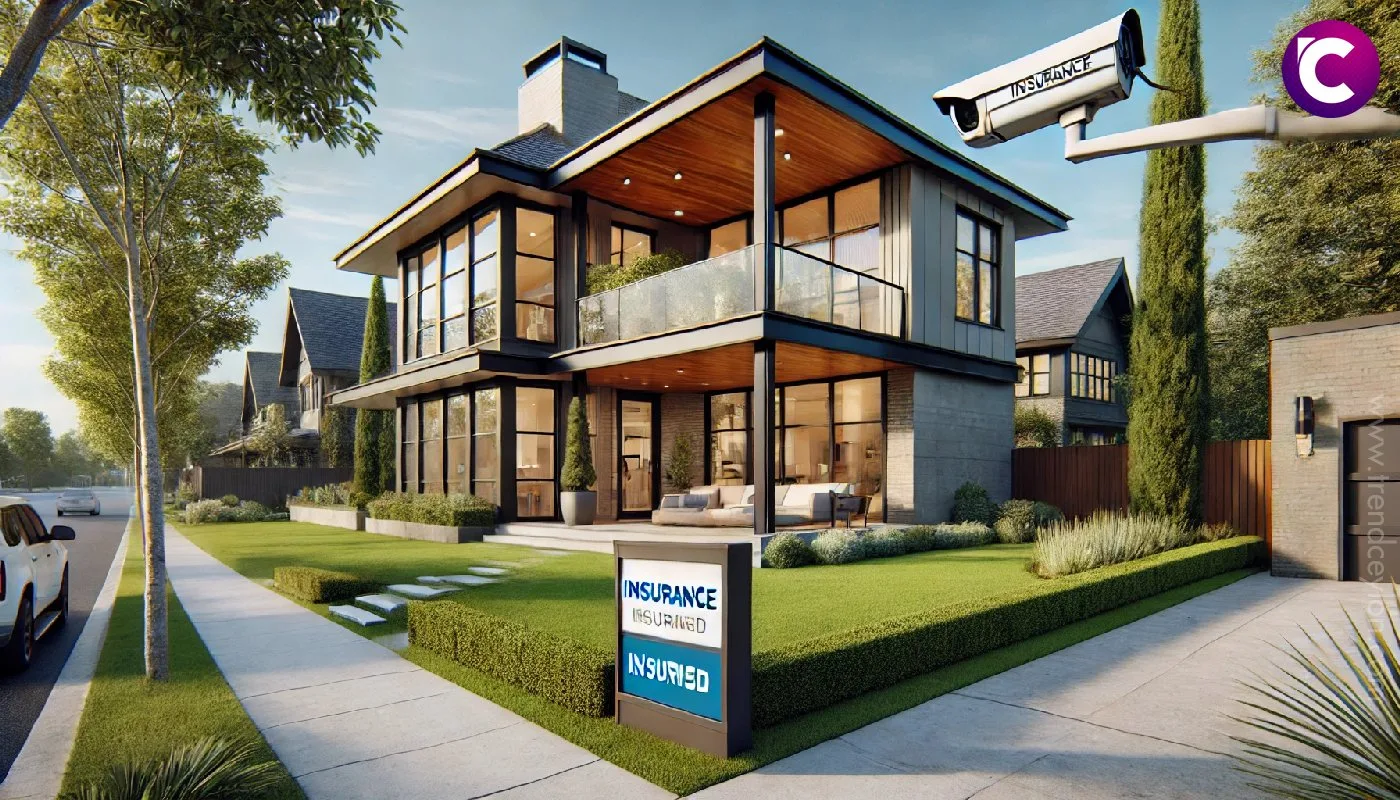Home security systems are no longer just about deterring burglars; they also play a significant role in reducing home insurance costs. Insurers in the US reward homeowners who invest in security measures because these systems reduce the likelihood of claims. This guide explores how home security systems can lower your premiums, the types of systems that qualify for discounts, and additional benefits they bring.
1. How Home Security Systems Impact Insurance Rates
Insurance companies calculate premiums based on risk. The lower the risk, the lower the premium.
- Security systems reduce the likelihood of theft, vandalism, and property damage, which lowers the insurer’s risk.
- Insurers offer discounts ranging from 5% to 20% for homes equipped with security systems.
- High-tech systems that include fire alarms, water leak detectors, and carbon monoxide monitors can result in even greater savings.
Investing in a comprehensive security system not only protects your home but also pays off in reduced premiums.
2. Types of Security Systems That Qualify for Discounts
Not all security systems are created equal. Insurers often offer greater discounts for advanced systems that include professional monitoring and integrated features.
- Monitored Alarm Systems: Systems that connect to a professional monitoring service qualify for the highest discounts.
- Smart Home Security Devices: Cameras, motion sensors, and door/window sensors that are app-controlled offer convenience and savings.
- Fire and Smoke Detection Systems: Homes with interconnected smoke alarms and fire sprinklers often receive additional discounts.
- Water Leak Detectors: Early detection systems for leaks or flooding reduce the risk of water damage claims.
Consult your insurer to determine which systems qualify for maximum discounts.
3. Benefits of Monitored Security Systems
Professional monitoring services go beyond self-installed cameras by providing 24/7 surveillance and quick emergency response.
- Faster Response Times: Monitored systems alert emergency services immediately, minimizing damage or loss.
- Higher Discount Potential: Insurers value professionally monitored systems more than DIY setups.
- Enhanced Safety Features: Many monitored systems include panic buttons and medical alert functions for additional security.
While monitored systems may have higher upfront costs, their long-term savings often outweigh the expense.
4. Integrating Smart Technology for Additional Savings
Smart home technology enhances security systems and can lead to even greater insurance discounts.
- Video Doorbells: Devices like Ring or Nest Hello deter package theft and enhance overall home security.
- Smart Locks: Keyless entry systems prevent unauthorized access and log who enters and exits your home.
- Motion-Activated Cameras: These cameras only record when movement is detected, saving storage space and improving surveillance accuracy.
- Remote Monitoring: Systems controlled via smartphone apps allow homeowners to monitor their property from anywhere.
Smart technology not only offers convenience but also demonstrates to insurers that you’ve invested in comprehensive protection.

5. Additional Safety Features That Reduce Premiums
Home security systems often integrate features that go beyond burglary prevention, further reducing insurance risks.
- Fire Alarms: Interconnected fire alarms alert the entire household and can notify emergency services automatically.
- Carbon Monoxide Detectors: These essential devices protect against this invisible threat and qualify for insurance discounts.
- Glass Break Sensors: Detect when windows are shattered, preventing unauthorized entry.
- Environmental Sensors: Systems that detect freezing pipes or high humidity levels reduce the likelihood of property damage claims.
The more risks your system mitigates, the greater the potential savings on your insurance premiums.
6. The Cost-Benefit Analysis of Installing a Security System
While security systems have upfront and ongoing costs, their ability to lower insurance premiums and enhance safety often makes them a worthwhile investment.
- Average Costs: Basic systems cost $200 to $600 upfront, with monitoring fees ranging from $10 to $50 per month.
- Insurance Savings: Premium reductions can add up to $100 to $300 annually, depending on your insurer and system type.
- Added Value: Security systems increase property value and appeal to potential buyers.
Calculate potential insurance savings to determine how quickly your system pays for itself.
7. Insurers That Reward Security Investments
Not all insurers offer the same level of discounts for security systems. Researching your provider’s policies can maximize your savings.
- Progressive: Offers up to 15% discounts for professionally monitored systems.
- State Farm: Provides savings for fire and burglary alarms and additional discounts for smart home devices.
- Allstate: Rewards policyholders with lower rates for installing comprehensive security systems.
- USAA: Offers significant discounts for active-duty military families using advanced home security systems.
Ask your insurer about specific discounts and approved devices to ensure eligibility.
8. Steps to Qualify for Home Insurance Discounts
To take advantage of home security system discounts, follow these steps:
- Choose an Approved System: Verify that the system you plan to install qualifies for discounts under your policy.
- Install and Activate the System: Ensure the system is fully operational and connected to any necessary monitoring services.
- Provide Documentation: Submit proof of installation, such as a receipt or certificate, to your insurer.
- Update Your Policy: Notify your insurer about your new security measures and request an updated quote.
Following these steps ensures you receive the maximum savings available.
9. The Added Peace of Mind
Beyond insurance discounts, home security systems provide invaluable peace of mind by protecting your property and loved ones.
- Security systems deter potential burglars, reducing the likelihood of break-ins.
- Integrated systems keep you informed about your home’s safety even when you’re away.
- The ability to respond quickly to emergencies minimizes property damage and emotional stress.
This dual benefit of protection and savings makes home security systems a smart choice for homeowners.
10. Combining Security Systems with Other Discounts
To maximize savings, combine your security system discounts with other home insurance savings opportunities.
- Bundle home and auto insurance policies for multi-policy discounts.
- Install additional safety features like deadbolt locks, fire extinguishers, or reinforced doors.
- Maintain a claims-free history to qualify for no-claims bonuses.
Layering discounts allows you to save even more on your insurance premiums.
Conclusion: Invest in Security to Save on Insurance
Home security systems are a powerful tool for reducing home insurance costs while providing enhanced protection for your property and loved ones. By investing in a professionally monitored system or integrating smart technology, you can unlock significant discounts and enjoy peace of mind. Whether you’re a new homeowner or looking to upgrade your coverage, understanding the role of home security systems in insurance savings is essential for making an informed decision.

















